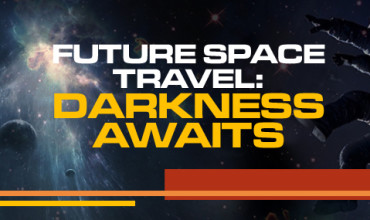There is an ancient Sufi parable that depicts two wise men, one of whom is depressed because he knows that his life is finite. When the other comments how all humans are aware of the reality of death, the former asks but how many really know that? Similar awareness is the one of the universe, and the vastness thereof.
Often when looking up at the night sky, humans have wondered what it is like to be in space. Science fiction has often attempted to imagine answers to this question, for example Georges Méliès’ Le Voyage dans la Lune, one of the first science fiction films ever shot, depicted humans running around on the Moon without space suits, being chased by aliens. We now know that the reality is very much different, and much more complex.
Actual Witnesses & Testimonials about life in Space
The closest we have come to human life in space has been the experience of astronauts spending time on stations orbiting Earth(between approximately two months up to 437 days, a record held by a Russian cosmonaut Valeri Polyakov, who stayed in the SS Mir in 1994-1995), as well as the testimonies of the twelve men who visited the Moon. As the Mars One mission and Inspiration One set for the beginning of 2020s draws closer, it is interesting to question what outer space holds for humankind.
If we are to become truly spacefaring as a species, many experiments, ranging from molecular to the physiological and psychological will have to be done. According to astronaut Marsha Ivins in her interview for the magazine Wired, immediately after the short and bumpy ride to orbit from the launch pad, the human body extends a couple of inches in space, but as our bodily fluids function normally with Earth gravity, the fluids start going upwards towards the head, producing a strong headache. In order to counter this, the body releases around a liter of fluids in the first couple of days, essentially peeing the headache away, believe it or not. Another problematic feature of space flight is eating, as food weighs nothing in space, so the astronauts get hungry much more often than on Earth. Astronauts often cited how food that was brought from Earth lost its’ taste, bringing about a loss of appetite for them, for reasons still uncertain.
A group of Russian scientists launched to the ISS on March 27, 2015 on a one-year endurance mission which involves 19 medical and biological tests, 14 of which were designed by the Russian Space Agency. The entire endeavor is a part of the planning phase in the preparation for the mission to Mars. Apart from the problem of zero gravity hunger, the scientists will test out the fluid distribution in the human body after reaching zero gravity, and the effects and consequences this redistribution will have for human organs working overtime by scanning their bodies on a device called Sprut (Russian word for squid). Testing will also be done on a machine named Udod, which should regulate breathing of astronauts, and pulling the blood down from the head, as the increased blood flow in the upper part of the body increases the intracranial pressure and sometimes causes the deterioration of eyesight.
Another rather large issue which will have to be investigated is the prolonged exposure of humans to an isolated environment, and a great example of the effects of this can be seen through an Earth-bound test named Biosphere 2, based in Oracle, Arizona), the largest closed system ever created. Similar tests, on a smaller scale were made around the world, such as the MARS-500, based in the Russian Academy of Sciences’ Institute of Biomedical Problems (IBMP).
According to Jeffrey Sutton, the head of the National Space Biomedical Research Institute in Houston, in his interview for the Christian Science Monitor, the challenge of spending a long time in space is that –
[you] have very healthy individuals that are going into a very dangerous environment and also an environment where day-to-day living is different.
Combined with a rather cramped space where the astronauts would have to spend a very long time (according to the Inspiration Mars project – 501 days), this can potentially lead to depression, anxiety and open conflict among the crew. Jane Poynter, the author of the book The Human Experiment: Two Years and Twenty Minutes Inside Biosphere 2, who, as the title says, participated in a closed experiment within Biosphere 2, with the goal of understanding the “confined environment psychology”.
What the participants in the experiment found was that mood swings and depression became everyday problems, and that with the prolonged exposure to each other the personal traits of the crew members would become more apparent, leading to divisions in the group.
Conclusion
With all of these risks accounted for, the challenge of conquering space becomes no longer just a one of perspective, but a medical and engineering one, as well as a challenge of human endurance. There are still many questions opened, but if we are to succeed, we mustn’t lose from sight what Carl Sagan wrote in his Pale Blue Dot –
The significance of our lives and our fragile planet is then determined only by our own wisdom and courage. We are the custodians of life’s meaning. We long for a Parent to care for us, to forgive us our errors, to save us from our childish mistakes. But knowledge is preferable to ignorance. Better by far to embrace the hard truth than a reassuring fable. If we crave some cosmic purpose, then let us find ourselves a worthy goal.


